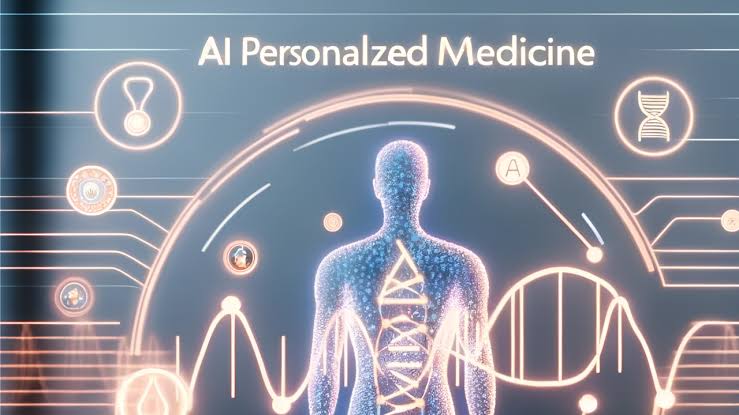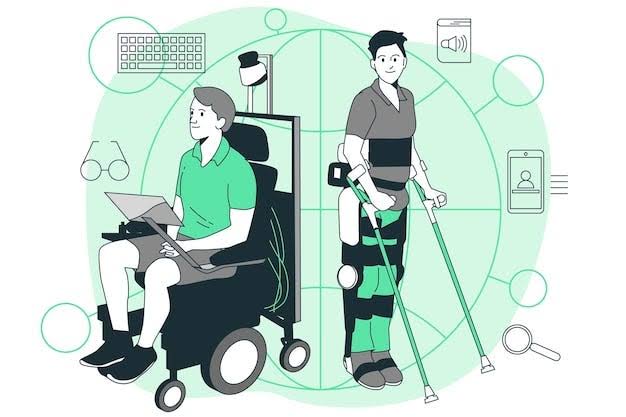Artificial intelligence is rapidly transforming healthcare, and one of its most significant applications is in the field of personalized medicine. Personalized medicine focuses on tailoring medical treatments and preventive strategies to the unique genetic makeup, lifestyle, and health profile of each patient. Unlike traditional one-size-fits-all methods, personalized medicine leverages data-driven insights to provide more effective, precise, and timely care. Artificial intelligence is the driving force behind this shift, as it can process massive amounts of data, identify patterns, and offer predictive insights that human analysis alone cannot achieve.
Advancing Genomic Analysis
One of the foundations of personalized medicine is genomics, which involves studying a patient’s DNA to understand their risk of developing certain diseases and their likely response to specific treatments. Artificial intelligence plays a crucial role here by analyzing vast genomic datasets at remarkable speeds. AI algorithms can identify genetic mutations associated with conditions like cancer, diabetes, and cardiovascular diseases more accurately than traditional methods.
This capacity allows doctors to design treatments that target the root cause of a disease rather than relying solely on generalized medications. For example, in oncology, AI-driven genomic analysis helps determine which therapy is most effective for a patient based on their tumor’s genetic profile.
Improving Disease Prediction and Prevention
Artificial intelligence enhances predictive healthcare by identifying risk factors and forecasting disease progression. By integrating data from medical records, lifestyle information, wearable devices, and genetic tests, AI systems can predict the likelihood of conditions such as heart disease, Alzheimer’s, or diabetes long before symptoms appear.
These predictive insights empower doctors and patients to take preventive actions. Personalized prevention plans might include specific lifestyle changes, early screenings, or proactive treatments tailored to the individual’s unique risk profile. This not only improves health outcomes but also reduces long-term healthcare costs.
Personalized Drug Development
Developing drugs that work for diverse populations has always been challenging. Many medications are less effective for some groups due to genetic differences. Artificial intelligence accelerates drug discovery by analyzing how different patient populations respond to various compounds.
AI tools can simulate how drugs interact with a patient’s genetic profile, speeding up the testing phase and reducing the cost of development. This approach ensures that the right patients receive the right drug at the right time. In addition, personalized medicine powered by AI is helping to minimize adverse drug reactions, which are a significant issue in traditional treatment methods.
Enhancing Treatment Plans with Precision
AI-driven tools are improving treatment personalization by analyzing data from medical imaging, electronic health records, and wearable sensors. These tools can suggest treatment modifications based on a patient’s ongoing response, ensuring that care is continuously adapted to meet their needs.
For example, in cancer treatment, AI systems can monitor tumor response to chemotherapy in real time. If a therapy is ineffective, the system can recommend alternative treatments immediately, sparing the patient from unnecessary side effects and delays.
Supporting Remote and Continuous Monitoring
Wearable devices and health apps generate continuous streams of patient data, and artificial intelligence makes sense of this information. AI-powered platforms can detect abnormalities in vital signs, glucose levels, or heart rhythms and notify healthcare providers instantly.
For patients with chronic diseases, this means more personalized care without constant hospital visits. It also enables healthcare professionals to intervene early, preventing complications and improving overall outcomes.
Revolutionizing Mental Health Treatment
Personalized medicine is not limited to physical health. Artificial intelligence is also making breakthroughs in mental healthcare. AI-driven apps can analyze speech, behavior, and even social media activity to detect early signs of depression, anxiety, or other mental health conditions.
By understanding an individual’s unique patterns, AI systems can recommend tailored therapy options or connect patients with the right specialists. This personalized approach reduces stigma, increases accessibility, and ensures that patients receive treatment that aligns with their personal needs.
Ethical and Privacy Considerations
While the benefits of AI in personalized medicine are immense, challenges remain. Handling sensitive patient data requires strict privacy safeguards. There are also concerns about algorithm bias, as AI systems trained on limited datasets may not provide equally accurate insights for all populations.
To address these challenges, transparent algorithms, diverse datasets, and strong data protection regulations are essential. Ethical frameworks must also ensure that AI supports doctors and patients rather than replacing human judgment.
The Future of AI in Personalized Medicine
Looking ahead, artificial intelligence will continue to expand its role in personalized medicine. Advances in machine learning, big data analytics, and biotechnology will make healthcare more proactive, accurate, and patient-centered. From virtual health assistants to AI-powered clinical decision-making tools, the future of personalized medicine promises more effective treatments and healthier lives.
In the long term, AI could enable fully individualized health plans where every medical decision is based on a person’s genetic, biological, and lifestyle profile. This vision of healthcare ensures that patients are no longer treated as averages but as unique individuals with specific needs.
Conclusion
Artificial intelligence is revolutionizing personalized medicine by enabling more accurate genomic analysis, predictive healthcare, personalized drug development, and tailored treatment plans. It supports continuous monitoring, enhances mental health treatment, and drives proactive care strategies. While ethical and privacy challenges remain, AI is set to become an indispensable tool in making medicine truly personal.




j6eaew
Reading this as a medical student is even more exciting